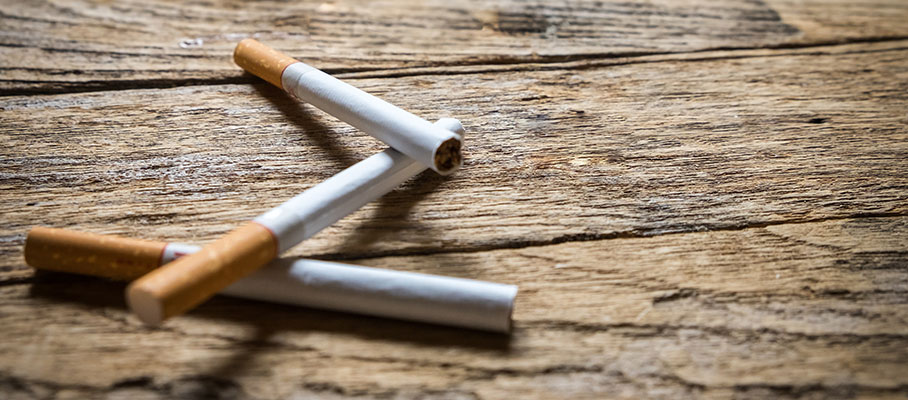Lifestyle
Top 7 Health Tests Every Smoker Must Get Done

Table of Contents
People who smoke tend to lose lives more than 10 years earlier than people who don’t.
Isn’t it alarming? Smokers are more susceptible to many life-threatening conditions, from cancer and lung disease to heart disease and diabetes.
Your best bet? Quit smoking and improve your health. For over 5 decades, health experts have linked smoking to lung cancer. Research continues to pinpoint more ways tobacco harms your health, from cancers to chronic diseases. How well do you take care of your health? Find out with our TruHealth package.
This is how smoking affects your body
Tobacco use affects almost every organ in your body. Smoking tobacco introduces not only nicotine but also more than 5,000 chemicals, including several carcinogenic (cancer-causing) chemicals, into your body. The damage caused by smoking can shorten your lifespan significantly. In fact, smoking is one of the leading causes of preventable death in India today.
In addition to its known cancer risks, smoking also causes many other chronic health problems that need ongoing care. Specific smoking-related problems that need treatment include:
- Decreased HDL (good) cholesterol and increased blood pressure (increasing risk of heart attack and stroke)
- Erectile dysfunction
- Lower oxygen to the heart and other tissues in the body (increasing risks for coronary artery disease, peripheral artery disease, and diabetes)
- Frequent occurrence of routine illnesses like colds, especially in children living with smokers
- Poor lung function (ability to get enough oxygen) leading to asthma, bronchitis, or emphysema
How are health problems from smoking diagnosed?
Diagnosis depends on your specific symptoms. For people who smoke, their healthcare provider will ask for details about their tobacco use, physically examine them and can ask for various lab tests and scans to assess their health.
Certain tests can detect and/or measure nicotine and its primary breakdown product (metabolite) cotinine in the blood, urine, saliva, or hair.
7 Medical tests that every smoker must get done:
1.Chest X ray: This test is a must for every smoker. A chest X ray can help the pathologists measure the damage that has happened to your lungs so far. Besides, it also helps to gain information about the health of the heart. The X-ray provides a photo-like image of your lungs and heart and helps in detecting any blood vessel problems caused due to smoking such as blocked arteries and other lung cancer related diseases which are more susceptible in smoker’s lungs.
2. Spirometry: This is one of the most important tests for smokers. Spirometry is a specific kind of breathing test which should be done along with a chest X-ray. This primary test is generally done to measure how effectively your lungs function, and therefore to rule out any possibility of lung cancer, lung fibrosis, esophaegal cancer and other interstitial lung diseases. Also known as the PFT test (pulmonary function test), this simple breathing test involves the patient blowing or inhaling into a machine to determine how much air is moving in and out of your lungs. It is best to avoid taking this test if you have recently had any heart or chest surgery.
3. CT Scan: Low-dose computed tomography, or CT scan helps to detect major issues like lung cancer. Chain smokers should never miss getting a CT scan done, as it provides better diagnostic images, allowing doctors to detect problems, such as lung cancer, in earlier stages than with plain X-rays. Diagnosing lung cancer early can save lives, because surgery is often still possible in the early stages. People with stage 1 lung cancers have a 60%-70% survival rate five years after the surgery compared to survival rate of only 5%-30% in later stages.
4. High-sensitivity C-reactive protein (hs-CRP) test: This is a blood test that finds lower levels of C-reactive protein (CRP and measures general levels of inflammation in your body. The hs-CRP test can be particularly used to find the risk for heart disease and stroke in people who don't already have a heart disease. Studies have reported a direct association between elevated levels of CRP and cigarette smoking. In fact, as per a research paper, smokers developed heart disease at a lower hs-CRP level compared with the nonsmokers.
5. Electrocardiogram: Substances such as carbon monoxide in tobacco bind with the haemoglobin in the RBC (Red blood cells) thereby preventing blood from entering your heart. This disrupts the regular functioning of your heart and may also result in clogging blood vessels and blocking arteries. Electrocardiogram or ECG may help health professionals detect any complications in a smoker’s heart. The ECG tests the regularity and speed of your heart beat and helps in detecting any possible problems at an earlier stage.
6. Diabetes screening: Smoking makes your body more resistant to insulin leading to higher levels of blood sugar. Smokers generally have a high risk of getting type 2 diabetes which may be the underlying cause for several other problems such as heart and kidney diseases. This is the reason why a diabetes screening test is also a must.
7. Vitamin D Blood test: If you are over 40 years of age and are a smoker, then you must go for this test. As a matter of fact, most smokers generally have a low amount of Vitamin D in blood.
When you quit, benefits happen almost immediately
Smoking cessation is bound to improve your health at any age. Years of smoking damage can reverse with time. This is how the timeline of quitting smoking looks like:
- After 20 minutes, your blood pressure and heart rate drop, and the temperature of your hands and feet increases
- After eight hours, your blood will contain lower levels of carbon monoxide and higher levels of oxygen
- After 24 hours, your risk of heart attack decreases
- After 48 hours, your nerve endings adjust to the absence of nicotine, and you begin to regain your ability to taste and smell
- After one to three months, your circulation improves, and you can tolerate more exercise
- After about nine months, your overall energy level increases, and you cough less. Plus, sinus congestion, fatigue and shortness of breath also decrease
- After one year, your risk of heart disease curtails to half compared to a current smoker
- After 10 years, your risk of dying from lung cancer drops to almost the same rate as a lifelong nonsmoker. Plus, you decrease the risk of other forms of cancer
The best way to avoid getting sick from smoking is to never start. If you do smoke, quitting as soon as possible can prevent or reverse health problems. Also, keep track of your health numbers to detect a health issue well within time.


































